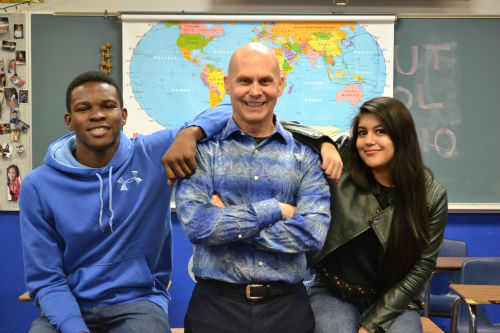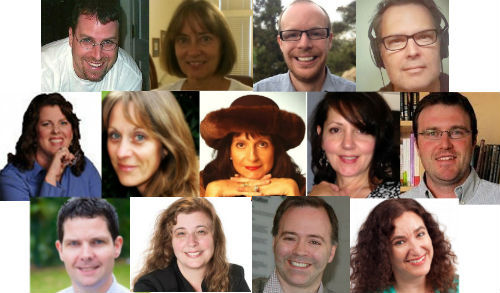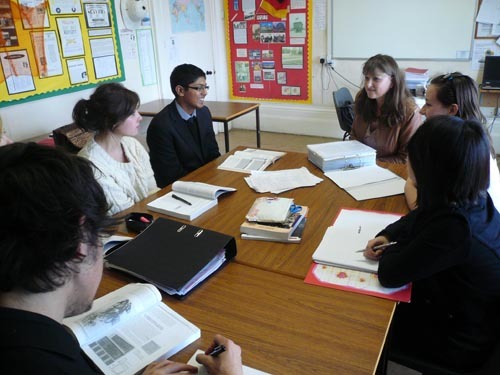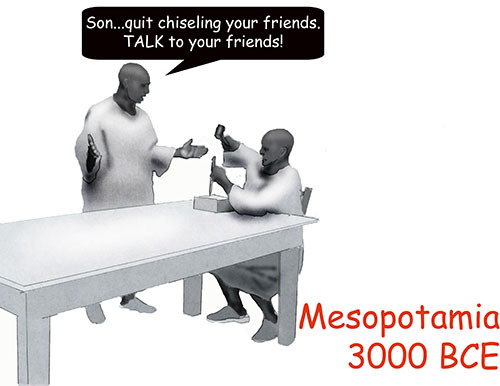
Dr. Tracey C. Burns is a Project Leader at the OECD’s Centre for Educational Research and Innovation, Directorate for Education and Skills in Paris (@OECD_Edu). She is considered a global expert on the subject of bullying. She notes “there is a huge amount of political attention being paid to the issue” and she summarizes this serious global problem as follows:
- In terms of prevalence, the bottom line is that it appears that traditional forms of bullying are remaining steady in terms of frequency while cyber bullying is increasing, although it is still not as common as face to face bullying.
- Les intimidateurs, motivated to enhance their status among their peers, bully in front of witnesses, whose approval (or at least tacit silence) Est crucial. They tend to choose their victims from those who sit in the bottom line of the social ledger, those least able to fight back. And it works, both to raise the popularity of the bully and to hurt the victim.
- There are several commonly accepted myths about the causes of bullying for which there is no supporting evidence. These include claims that bullying stems from large class or school sizes, competition for grades, or other school life pressures. Another common assumption is that bullies suffer from poor self-esteem and insecurity.
Ce qui peut être fait? Nous avons demandé à notre Top 12 Global Teacher Bloggers to share their answers to this question: Quels sont plusieurs façons réels que vous avez vu l'intimidation réduite?
Référé par Haut 12 Global Blogger Todd Finley (finleyt), James Alan Sturtevant (jamessturtevant), Social Studies teacher at Big Walnut High School in Sunbury, Ohio and Author of You’ve Gotta Connect, makes the bold recommendation that reaching out to bullies can sometimes be as important as punishment. In his words, “Harsh consequences don’t always work, peut faire pire intimidateurs, et évoquent parfois la vengeance pour les victimes malheureuses.” Reaching out does not mean excusing but remaining in stealth dialogue to foster potential positive influence. En savoir plus.
Pauline Hawkins (PaulineDHawkins), auteur de Noyau Peu fréquent: 25 Façons d'aider votre enfant à réussir dans un système éducatif Cookie Cutter, says the only way to reduce bullying is to be a good role model in your treatment of others, as a parent or teacher. She cautions, “The anti-bullying programs in schools will have little influence on students if the adults in their lives are not teaching and modeling respect.” En savoir plus.
Adam Steiner (steineredtech) dispels myths about cyberbullying and provides much needed pragmatic advice to school administrators. One of many gems is that no school, no matter how genial it is in real life, is exempt from online bullying. En savoir plus.
De Australie, Lisa Currie (RippleKindness), Créateur du projet Kindness Ripple, provided two insightful articles this month. The first proposes that social and emotional learning must be emphasized in schools to reduce bullying. Rather than merely blaming the bully, other factors must be looked into-such as a lack of character building education. En savoir plus.
Lisa’s second article elaborates on the beneficiality of emotional learning by pointing to studies that show how the practice of kindness not only produces joy but also reduces bullying in schools. En savoir plus.
Vicki Davis (coolcatteacher) uses personal experience to give surefire ways to nip bullying in the bud. One of her advisements is to form allies with peers. Her real world advice will be a must to concerned students. En Savoir Plus.
De Nouvelle-Zélande, Craig Kemp (mrkempnz) offers three tools that parents and administrators will find very assuring in combating bullying. One is creating a culture of trust from the top down, another is educating parents. He provides useful tips for how to get started in this process. En Savoir Plus.
Tom Bennett (@ Tombennett71), Joe Bower, Susan Bowles (FloridaKteacher), Lisa Currie, Vicki Davis, Todd Finley, Pauline Hawkins, Craig Kemp, Karen Lirenman (KLirenman), Adam Steiner, Silvia Tolisano (langwitches), et Richard Wells (iPadWells) sont La recherche globale pour l'éducation 2014 Haut 12 Enseignant blogueurs mondial.
Our special thanks to Dr. Tracey Burns at the OECD in Paris. Pour plus d'informations: http://oecdeducationtoday.blogspot.fr/2014/10/combatting-bullying-in-schools.html et http://www.oecd.org/edu/ceri/Spotlight%205-%20Infinite%20Connections.pdf
(Lead Photograph featuring TJ Coates and Dorali Arambula with James Alan Sturtevant is courtesy of Caroline Prater)


Rejoignez-moi et leaders d'opinion de renommée mondiale dont Sir Michael Barber (Royaume-Uni), Dr. Michael Bloquer (États-Unis), Dr. Leon Botstein (États-Unis), Professeur Clay Christensen (États-Unis), Dr. Linda Darling-Hammond (États-Unis), Dr. MadhavChavan (Inde), Le professeur Michael Fullan (Canada), Professeur Howard Gardner (États-Unis), Professeur Andy Hargreaves (États-Unis), Professeur Yvonne Hellman (Pays-Bas), Professeur Kristin Helstad (Norvège), Jean Hendrickson (États-Unis), Professeur Rose Hipkins (Nouvelle-Zélande), Professeur Cornelia Hoogland (Canada), Honorable Jeff Johnson (Canada), Mme. Chantal Kaufmann (Belgique), Dr. EijaKauppinen (Finlande), Le secrétaire d'Etat TapioKosunen (Finlande), Professor Dominique Lafontaine (Belgique), Professeur Hugh Lauder (Royaume-Uni), Seigneur Ken Macdonald (Royaume-Uni), Professeur Geoff Masters (Australie), Professeur Barry McGaw (Australie), Shiv Nadar (Inde), Professeur R. Natarajan (Inde), Dr. PAK NG (Singapour), Dr. Denise Pape (États-Unis), Sridhar Rajagopalan (Inde), Dr. Diane Ravitch (États-Unis), Richard Wilson Riley (États-Unis), Sir Ken Robinson (Royaume-Uni), Professeur Pasi Sahlberg (Finlande), Professeur Manabu Sato (Japon), Andreas Schleicher (PISA, OCDE), Dr. Anthony Seldon (Royaume-Uni), Dr. David Shaffer (États-Unis), Dr. Kirsten immersive, (Norvège), Chancelier Stephen Spahn (États-Unis), Yves Thézé (LyceeFrancais États-Unis), Professeur Charles Ungerleider (Canada), Professeur Tony Wagner (États-Unis), Sir David Watson (Royaume-Uni), Professeur Dylan Wiliam (Royaume-Uni), Dr. Mark Wormald (Royaume-Uni), Professeur Theo Wubbels (Pays-Bas), Professeur Michael Young (Royaume-Uni), et le professeur Zhang Minxuan (Chine) alors qu'ils explorent les grandes questions d'éducation de l'image que toutes les nations doivent faire face aujourd'hui. La recherche globale pour l'éducation communautaire page
C. M. Rubin est l'auteur de deux séries en ligne largement lecture pour lequel elle a reçu une 2011 Upton Sinclair prix, “La recherche globale pour l'éducation” et “Comment allons-nous savoir?” Elle est également l'auteur de trois livres à succès, Y compris The Real Alice au pays des merveilles, est l'éditeur de CMRubinWorld, et est une fondation perturbateurs Fellow.
Suivez C. M. Rubin sur Twitter: www.twitter.com/@cmrubinworld





Commentaires récents